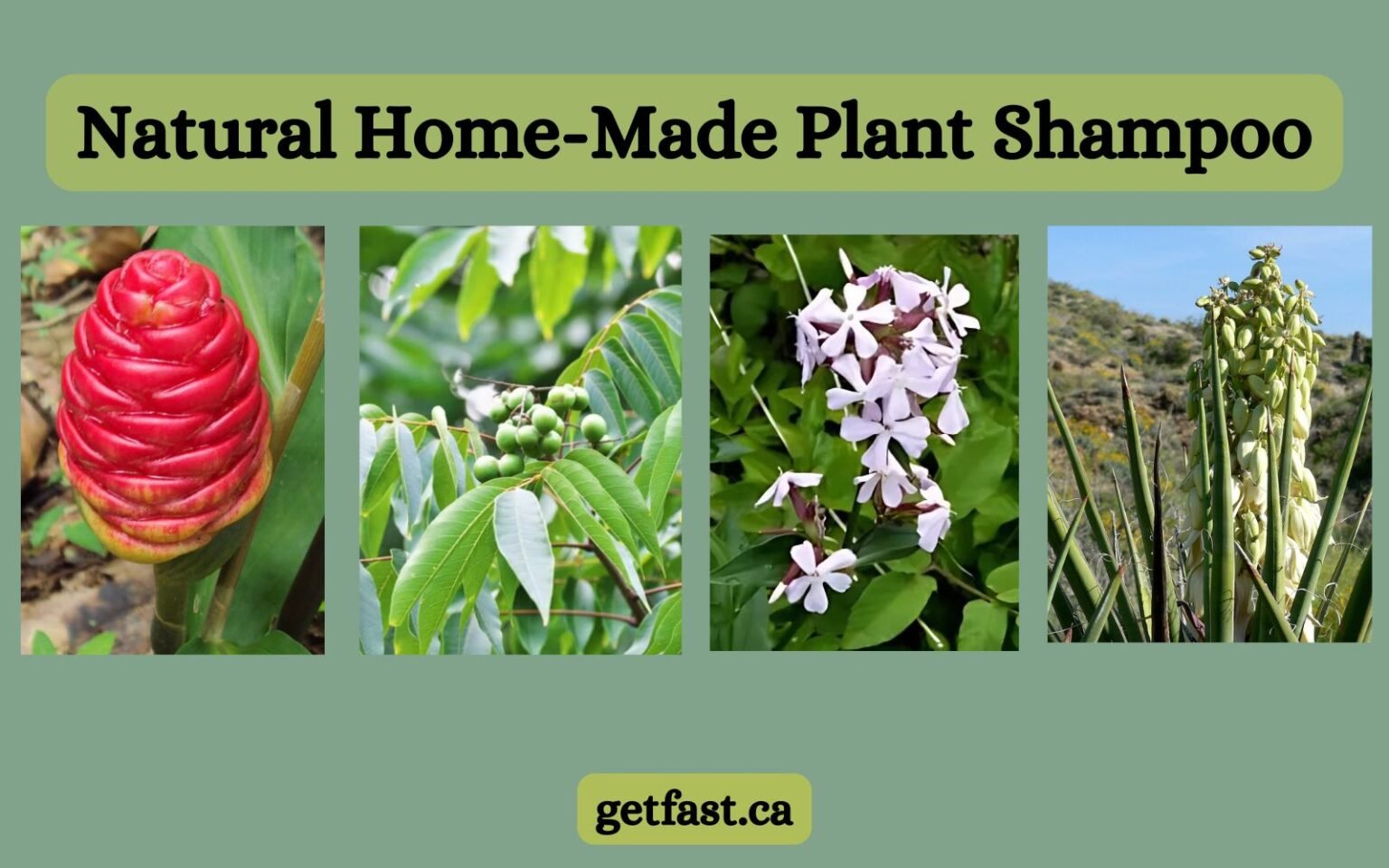The majority of hair cleansing products that we use today are full of chemicals that can harm our hair and scalp. According to recent research, over 40% of shampoos that we use today contain harmful ingredients, such as parabens and sulfates. Hence, it can cause hair irritation and sensitivity in our scalp. As more people are becoming aware of this fact, the popularity of natural products is also growing. So, how do you use plant shampoo?
Through this blog post, we will look at different herbal hair cleansers, how you can make your own at home, and how to pick the right one for your hair. Besides this, we will also share some tips to help you get the best results from these shampoos.
4 Different Types Of Shampoo Plants And Step To Use Them
These plants are a natural way of cleaning your hair. In this section, we will see some different types of Plant shampoos and how they help keep your hair shiny and healthy.
Shampoo Ginger (Zingiber Zerumbet)
It can grow tall, up to 7 feet. Moreover, it has red cones or bulbs that release sweet-smelling liquid when pressed. You just need to collect that liquid, apply it to your hair, and leave for 15 – 20 minutes. Then rinse your hair using cold water because the hot water may damage your hair. Using these bulbs is pretty popular in tropical regions due to its natural cleansing properties.
Soapnut (Sapindus Mukorossi)
This plant is an herbal shampoo alternative and people use its outer shell for saponin to clean their hair. You just need to boil its nuts in hot water for some time, let it cool down, and use that water to clean your hair. Soapnut nuts are mild, non-toxic, and gentle on the skin, making them great for people with sensitive skin or allergies.
Soapwort (Sopanaria Officinalis)
The Soapwort roots contain saponins, which further create a foamy leather-like soap. To use it, you need to clean the roots, chop them into smaller pieces, and boil them in water for 30 – 45 minutes. Then you must stain the water in a bowl, let it cool down, and use it as a shampoo. It is non-irritating and you can use it to clean both hair and skin.
Yucca (Yucca Schidigera)
Its roots are rich in saponins, which are natural cleansers. You need to clean & cut the Yucca roots into smaller pieces and boil them in water to create a cleansing solution. Next, you must strain the water into a clean bowl and use it to clean your hair. It will further promote healthier hair growth and also keep the scalp clean.
Knowing about different shampoo plants will help you to pick the best herbal option for your hair. These plants are a great way to care for your hair while being eco-friendly.
Common Hair Issues And the Right Plant To Fix Them
Choosing the right plant shampoo is important for your hair. Hence, the following steps will guide you to choose the right one for your hair.
- Hair Fall – Use shampoos made from Zingiber Zerumbet to boost blood flow to the scalp. This strengthens hair follicles and reduces hair fall, while ginger’s anti-inflammatory effects improve hair health from the roots. Besides this, even soapnut and hibiscus-based plants will help you to treat hair fall.
- Dandruff – Using Aloe Vera, soapnut, Amla, and Tulsi is a great way of treating dandruff. It helps in soothing irritation, reducing flakes, and moisturizing the scalp. Its antifungal properties help fight dandruff-causing germs as well for healthy hair and scalp.
- Frizzy Hair – Soapnut, works well for frizzy hair. They clean without removing moisture, further helping to smooth & hydrate your hair. Moreover, it also reduces frizz, leaving your hair soft and shiny. Apart from this, you can also use aloe vera, banana, and coconut oil to fix your frizzy hair.
- Poor Hair Growth – Yucca is good for slow hair growth. Its vitamins and minerals nourish the scalp, strengthen hair follicles, stimulate blood flow, and promote fuller & healthier hair growth.
- Oily Scalp – Soapwort is great for oily scalp. It cleans the scalp while balancing oil levels, keeping the scalp fresh without drying out or removing natural moisture. Using bay leaf, burdock root, lavender, and lemongrass will also help you to make your scalp less oily.
- Sensitive Scalp – Aloe Vera is perfect for sensitive scalps. It calms irritation, reduces inflammation, and hydrates the scalp. As a result, this offers a gentle and soothing cleanser for sensitive or easily irritated skin.
- Dry Scalp – Soapnut is perfect for dry scalps. It nourishes the scalp, prevents dryness, and hydrates the scalp. Moreover, it offers a gentle and soothing cleanser for sensitive or easily irritated skin.
Picking up the right shampoo will help your hair stay clean and healthy. By knowing your hair type, you can choose the best one among these options that will not damage your hair.
On The Whole
The majority of hair cleansers in the market contain harmful chemicals that can irritate your scalp and damage your hair. herbal shampoos are a natural and safer option. But how do you use plant shampoo to resolve common hair problems? Soapnut, soapwort, and yucca-based cleansers can help with issues like hair fall, dandruff, frizz, and oily/dry scalp. Choosing the right cleanser for your hair type keeps it clean, healthy, and shiny.
FAQs
Question. Who should use plant shampoo?
Answer. This cleanser is good for people who want natural hair care. It is gentle on sensitive scalps, free from chemicals, and helps keep hair healthy with herbal ingredients.
Question. When is the best time to use plant shampoo?
Answer. You can use it 2 to 3 times a week during a regular hair-washing routine. It keeps your hair clean and healthy without using harsh chemicals, further making it gentle on your scalp.
Question. How do the shampoos in this blog post work?
Answer. Shampoo ginger has tiny white flowers hidden in colorful bracts. When you squeeze the ripe cones, a fragrant liquid comes out, which has been used for hair or body wash for years.


